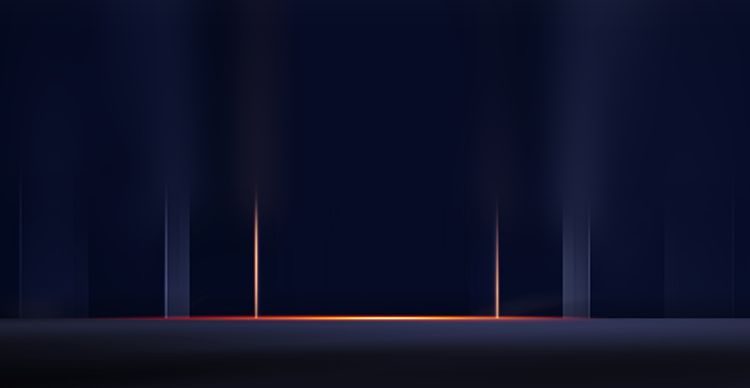2023 IEEE/ACM Symposium on Logic in Computer Science (LICS)
2023年IEEE/ACM计算机科学逻辑研讨会(LICS)
Titles and Short Abstracts Due:18 January 2023
Full Papers Due:23 January 2023
Author Response Period:15–19 March 2023
Author Notification:5 April 2023
Conference:26 – 29 June 2023
The LICS Symposium is an annual international forum on theoretical and practical topics in computer science that relate to logic, broadly construed. LICS 2023 will be hosted at Boston University, USA during 26 – 29 June 2023, with affiliated workshops 24 – 25 June.
LICS Sponsorship
The symposium is sponsored by ACM SIGLOG and the IEEE Technical Committee on Mathematical Foundations of Computing.


Website by Sam Staton based on a bootstrap design by Hartmut Eilers and Eric Koskinen.
Program Committee Chair
Igor Walukiewicz, CNRS, Université de Bordeaux, France
Program Committee
S. Akshay, IIT Bombay, India
Shaull Almagor, Technion, Israel
Pablo Barcelo, Universidad Católica de Chile
Manuel Bodirsky, TU Dresden, Germany
Dmitry Chistikov, University of Warwick, UK
Ugo Dal Lago, University of Bologna & INRIA Sophia Antipolis
Anuj Dawar, University of Cambridge, UK
Valeria de Paiva, Topos Institute, Berkeley, USA
Stephane Demri, CNRS, LMF, France
Yuxin Deng, East China Normal University, China
Arnaud Durand, Université Paris Cité, France
Claudia Faggian:, IRIF, CNRS and Université Paris Cité
Maribel Fernández, King's College London, UK
Matthew Hague, Royal Holloway University of London, UK
Justin Hsu, Cornell University, USA
Shin-ya Katsumata, National Institute of Informatics, Japan
Alex Kavvos, University of Bristol, UK
Stefan Kiefer, University of Oxford, UK
Bartek Klin, University of Oxford, UK
Naoki Kobayashi, University of Tokyo, Japan
Barbara Koenig, Duisburg-Essen, Germany
Laura Kovács, Vienna University of Technology, Austria
Filip Mazowiecki, University of Warsaw
Damiano Mazza, CNRS, LIPN, France
Catuscia Palamidessi, INRIA, LIX, France
Dirk Pattinson, The Australian National University, Canberra, Australia
Daniela Petrisan, IRIF, France
André Platzer, Karlsruhe Institute of Technology, Germany
Damien Pous, CNRS, LIP, France
Pawel Sobocinski, Tallinn University of Technology, Estonia
Szymon Toruńczyk, University of Warsaw, Poland
Frits Vaandrager, Radboud University, The Netherlands
Fabio Zanasi, University College London, UK
Georg Zetzsche, MPI-SWS, Germany
Thomas Zeume, Ruhr-Universität Bochum, Germany
Call for Papers
The 38th Annual ACM/IEEE Symposium on Logic in Computer Science (LICS 2023) will be held in Boston, USA, from 26 – 29 June, with workshops 24 – 25 June.
The LICS Symposium is an annual international forum on theoretical and practical topics in computer science that relate to logic, broadly construed. We invite submissions on topics that fit under that rubric. Suggested, but not exclusive, topics of interest include:
automata theory, automated deduction, categorical models and logics, concurrency and distributed computation, constraint programming, constructive mathematics, database theory, decision procedures, description logics, domain theory, finite model theory, formal aspects of program analysis, formal methods, foundations of computability, foundations of probabilistic, real-time and hybrid systems, games and logic, higher-order logic, knowledge representation and reasoning, lambda and combinatory calculi, linear logic, logic programming, logical aspects of AI, logical aspects of bioinformatics, logical aspects of computational complexity, logical aspects of quantum computation, logical frameworks, logics of programs, modal and temporal logics, model checking, process calculi, programming language semantics, proof theory, reasoning about security and privacy, rewriting, type systems, type theory, and verification.
Submission deadlines are firm; late submissions will not be considered. All submissions will be electronic via easychair.
Formatting instructions: Every full paper must be submitted in the IEEE Proceedings 2-column 10pt format and may be at most 12 pages, excluding references.
The paper must be in English and provide sufficient detail to allow the program committee to assess the merits of the paper. It should begin with a succinct statement of the issues, a summary of the main results, and a brief explanation of their significance and relevance to the conference and to computer science, all phrased for the non-specialist. Technical development directed to the specialist should follow. References and comparisons with related work must be included. (If necessary, detailed proofs of technical results may be included in a clearly-labeled appendix, to be consulted at the discretion of program committee members.) Submissions not conforming to the above requirements will be rejected without further consideration. Paper selection will be merit-based, with no a priori limit on the number of accepted papers. Papers authored or co-authored by members of the program committee are not allowed.
Results must be unpublished and not submitted for publication elsewhere, including the proceedings of other symposia or workshops. The program chair must be informed, in advance of submission, of any closely related work submitted or about to be submitted to a conference or journal. Authors of accepted papers are expected to sign copyright release forms. One author of each accepted paper is expected to register and present the paper at the conference. Remote presentations can be organized for authors who are not to be able to attend the meeting.
LICS 2023 will use a lightweight double-blind reviewing process. Following this process means that reviewers will not see the authors' names or affiliations as they initially review a paper. The authors' names will then be revealed to the reviewers only once their reviews have been submitted.
To facilitate this process, submitted papers must adhere to the following:
Author names and institutions must be omitted and
References to the authors' own related work should be in the third person (e.g., not "We build on our previous work ..." but rather "We build on the work of ...").
The purpose of this process is to help the reviewers come to an initial judgment about the paper without bias, not to make it impossible for them to discover the authors if they were to try. Nothing should be done in the name of anonymity that weakens the submission, makes the job of reviewing the paper more difficult, or interferes with the process of disseminating new ideas. For example, important background references should not be omitted or anonymized, even if they are written by the same authors and share common ideas, techniques, or infrastructure. Authors should feel free to disseminate their ideas or draft versions of their paper as they normally would. For instance, authors may post drafts of their papers on the web or give talks on their research ideas.
Contact Us
Authors can scan the code to add conference teachers and send IEEE for submission consultation




